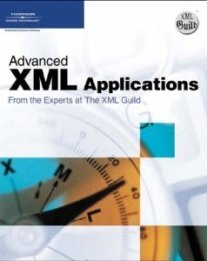wfs:LockFeatureType
This type defines the LockFeature operation. The LockFeature
element contains one or more Lock elements that define which
features of a particular type should be locked. A lock
identifier (lockId) is returned to the client application which
can be used by subsequent operations to reference the locked
features.
Complex type information
Namespace: http://niem.gov/niem/external/ogc-wfs/1.1.0/dhs-gmo/1.0.0
Schema document: external/ogc-wfs/1.1.0/dhs-gmo/1.0.0/wfs.xsd
Content
- wfs:Lock [1..*] The lock element is used to indicate which feature instances of particular type are to be locked.
Attributes
| Name | Occ | Type | Description | Notes |
|---|---|---|---|---|
| service | [0..1] | ows:ServiceType | The service attribute is included to support service endpoints that implement more than one OGC service. For example, a single CGI that implements WMS, WFS and WCS services. The endpoint can inspect the value of this attribute to figure out which service should process the request. The value WFS indicates that a web feature service should process the request. This parameter is somewhat redundant in the XML encoding since the request namespace can be used to determine which service should process any give request. For example, wfs:GetCapabilities and easily be distinguished from wcs:GetCapabilities using the namespaces. | Default value is "WFS". from type wfs:BaseRequestType |
| version | [0..1] | xsd:string | The version attribute is used to indicate the version of the WFS specification that a request conforms to. All requests in this schema conform to V1.1 of the WFS specification. For WFS implementations that support more than one version of a WFS sepcification ... if the version attribute is not specified then the service should assume that the request conforms to greatest available specification version. | Default value is "1.1.0". from type wfs:BaseRequestType |
| handle | [0..1] | xsd:string | The handle attribute allows a client application to assign a client-generated request identifier to a WFS request. The handle is included to facilitate error reporting. A WFS may report the handle in an exception report to identify the offending request or action. If the handle is not present, then the WFS may employ other means to localize the error (e.g. line numbers). | from type wfs:BaseRequestType |
| expiry | [0..1] | xsd:positiveInteger | The expiry attribute is used to set the length of time (expressed in minutes) that features will remain locked as a result of a LockFeature request. After the expiry period elapses, the locked resources must be released. If the expiry attribute is not set, then the default value of 5 minutes will be enforced. | Default value is "5". |
| lockAction | [0..1] | wfs:AllSomeType | The lockAction attribute is used to indicate what a Web Feature Service should do when it encounters a feature instance that has already been locked by another client application. Valid values are ALL or SOME. ALL means that the Web Feature Service must acquire locks on all the requested feature instances. If it cannot acquire those locks then the request should fail. In this instance, all locks acquired by the operation should be released. SOME means that the Web Feature Service should lock as many of the requested features as it can. | Default value is "ALL". |
Used by
- Element wfs:LockFeature
Type inheritance chain
- wfs:BaseRequestType
- wfs:LockFeatureType



